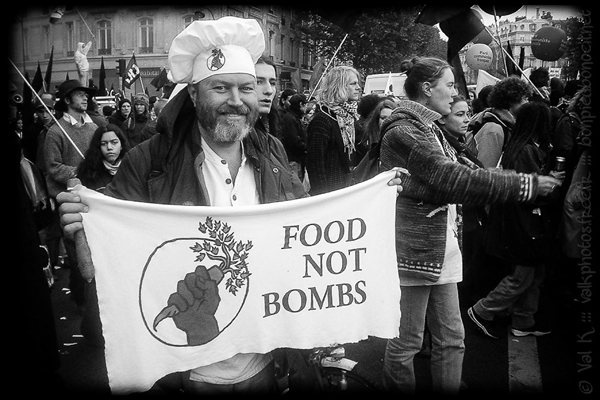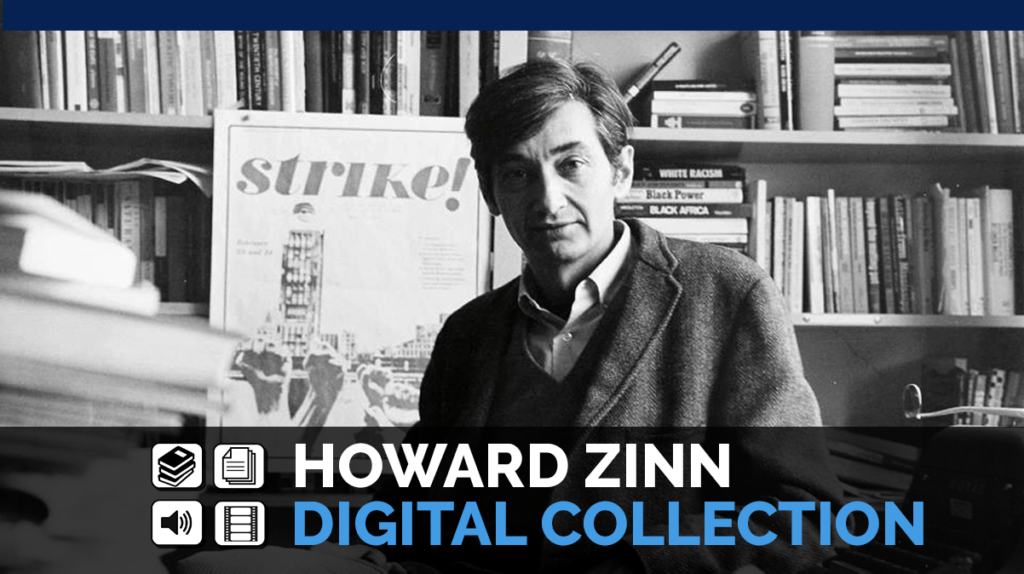Our Favorite Teacher Series
Howard Zinn taught at Spelman College and Boston University where he had an extraordinary influence on his students’ understanding of history and their role in the world. The “Howard Zinn: Our Favorite Teacher” series highlights Zinn’s lasting impact as a professor.Keith McHenry's Reflections

I took Howard Zinn’s American History class in Morse Auditorium at Boston University. I recall that a small group of patriotic football and hockey players would sit in the front row and be shocked at Howard’s lectures and argue with him. I had the impression they thought it would be an easy way to get some academic grades. I also remember Howard would move the lectures to a larger room because so many non-students came to witness the event.
I also interacted with Howard at the Hedge School and as an activist with the BU Exposure.
The largest impact during his class was his report on his participation in the anti-nuclear power protests at Seabrook Nuclear Station. This inspired me to join Clamshell Alliance, where I participated in endless meetings. I participated in the October 6, 1979, occupation attempt of the Seabrook Nuclear Station site, which for many of us was life changing. It was at the May 24, 1980, occupation attempt where my friend Brian was arrested that brought the eight of us together that evening to become the first Food Not Bombs collective.
 Howard wrote the foreword to my first book, Food Not Bombs: How to Feed the Hungry and Build Community.
Howard wrote the foreword to my first book, Food Not Bombs: How to Feed the Hungry and Build Community.
Howard inspired a second life changing action when he spoke at a media event in San Francisco in support of the city dropping my Three Strikes case where I had been framed by the mayor’s office and faced 25 to life.
He suggested we ask Clinton’s Justice Department to send in Federal Marshals to protect us from the violence of the San Francisco Police. We provided wire tape memos and video of the beatings and theft of our food to the Justice Department who, after an investigation, found that the city was acting in an unlawful way. This letter provided evidence to Amnesty International and the United Nations to investigate, and Amnesty declared any volunteer convicted by the city a Prisoner of Conscience and would work for our unconditional release.
I spoke with Howard at an anti-death penalty event in Chicago and he agreed to write a foreword to my second book Hungry for Peace, an updated replacement for the first book. Sadly he passed before the book was finished so his family let me use his first foreword in the second title.

Excerpt from Foreword by Howard Zinn to Food Not Bombs: How to Feed the Hungry and Build Community
 One night I was invited to a gathering place for poets, musicians, and performers of all sorts who were possessed of some social consciousness, and there was a counter at the side of the room, and, again, that sign: Food Not Bombs.
One night I was invited to a gathering place for poets, musicians, and performers of all sorts who were possessed of some social consciousness, and there was a counter at the side of the room, and, again, that sign: Food Not Bombs.
This time, I paid more than ordinary attention, because I recognized the man behind the counter, Eric Weinberger. I had met him twenty-five years before on the road from Selma to Montgomery, Alabama, in the great civil rights march of 1965, and again in 1977, in another march, this time of anti-nuclear activists, into the site of the Seabrook nuclear power plant.
Now another dozen years had elapsed, and he was with Food Not Bombs. I thought these Food Not Bombs folk are carrying on the long march of the American people, moving slowly but inexorably towards a livable society. The message of Food Not Bombs is simple and powerful: no one should be without food in a world so richly provided with land, sun, and human ingenuity.
Continue reading in Hungry for Peace.

Keith McHenry is an artist, activist, and author. He co-founded Food Not Bombs in Boston with seven friends in 1980. Keith studied painting at Boston University and started a graphic design company called Brushfire Graphics. He has recovered, cooked and shared food with the hungry with Food Not Bombs for over 37 years. Keith was arrested “for making a political statement” by sharing vegan meals in San Francisco, spent a total two years in jail and faced 25 years to life in prison. He has written three books and enjoys tending his garden, sharing meals with the hungry, maintaining one of the movement’s websites and helping coordinate logistics for Food Not Bombs globally.
Read more in “Food Not Bombs: What to Know About the Free Meal Collective” in Teen Vogue (April 27, 2020).
Howard Zinn taught at Spelman College and Boston University where he had an extraordinary influence on his students’ understanding of history and their role in the world. This series highlights Zinn’s lasting impact as a professor. Read more stories and submit your own.




